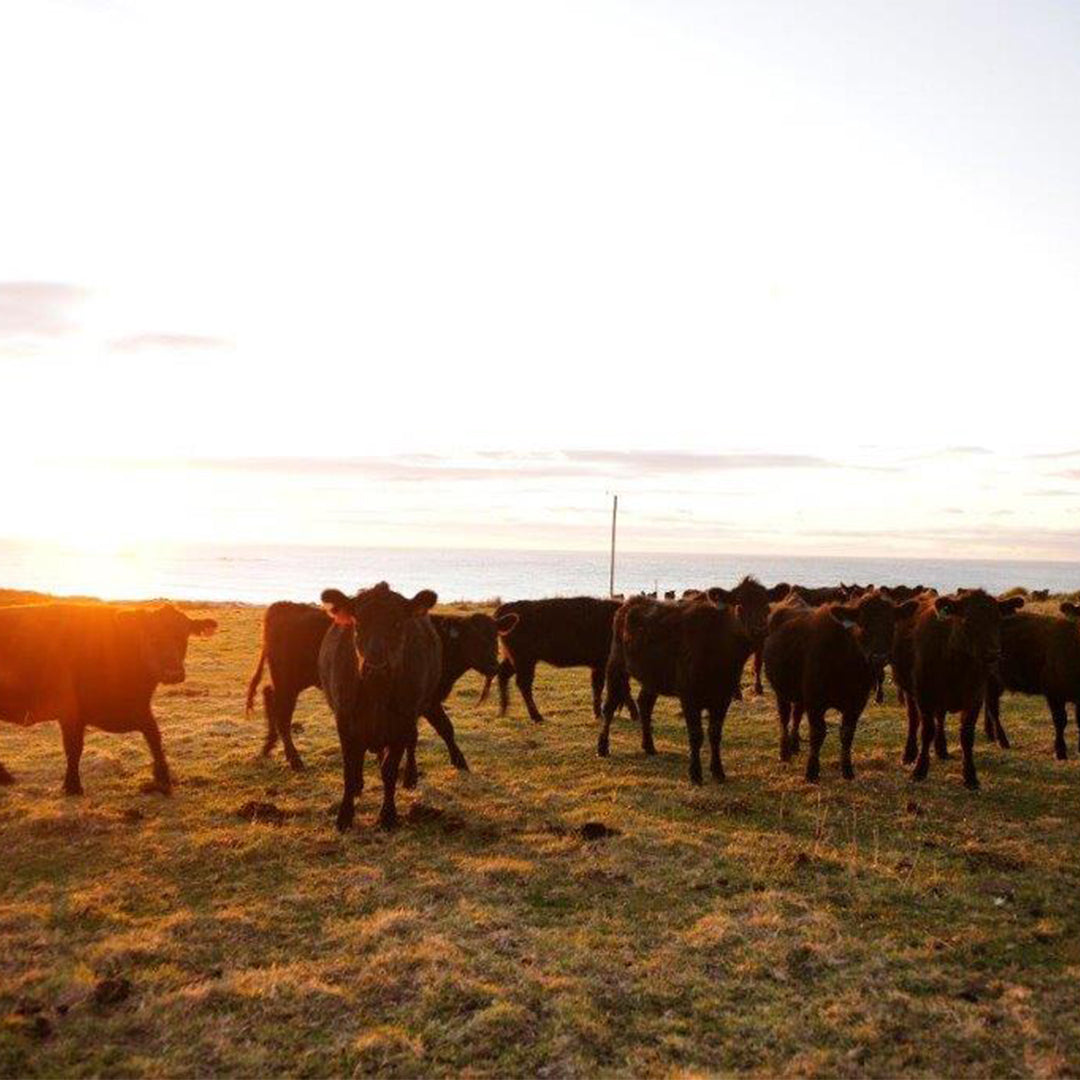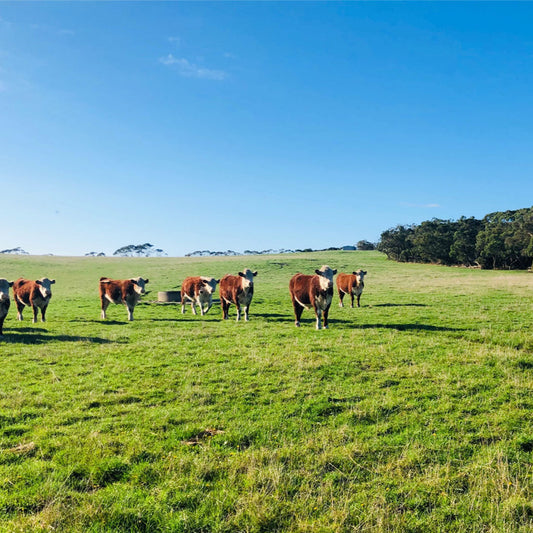
Take Your Vitamins with Grass Fed Beef
What Vitamins are in Grass Fed Beef?
There are lots of vitamins in grass fed beef that are essential to life. These beef vitamins include vitamin A, vitamin B, and instead of reaching for a bottle of pills the next time you need to supplement your diet and increase your vitamin intake, you should know that a lot of what is in those hard-to-swallow pills comes in fork-sized bites of deliciousness. Other important minerals and vitamins in grass fed beef are zinc and selenium, to name just a few.
Vitamin A
Vitamin A is a fat-soluble vitamin in beef, fish, poultry, and dairy products. While it’s not in all cuts of beef, it’s particularly abundant in the liver. Vitamin A is:
- Important for eyesight
- Critical to a healthy immune system
- Vital to organ function, especially in the liver, kidneys, lungs, and reproductive system.
- Vitamin A prevents things like Age-related macular degeneration (AMD), an eye condition causing loss of vision
- People who eat lots of vitamin A may have a lower risk for cancer
Vitamin B
One of the most plentiful beef vitamins is vitamin B. This vitamin comes in a lot of different forms including thiamine, riboflavin, niacin, pyridoxine, biotin, and folic acid, and they’re all important.
- Vitamin B12 is one of the most widely-available vitamins in grass fed beef, and is present in very high quantities in Pre beef. It helps support your immune system and brain health
- Vitamin B helps support and regulate your metabolism
- Proper vitamin B intake supports the growth of red blood cells and regulates cardiovascular (heart) health
- Most of the stuff your breakfast cereal has added...but what would you rather eat? A steak or corn flakes?
Zinc
When it comes to beef vitamins and minerals, zinc is one of the most highly-abundant minerals in grass fed beef. Zinc:
- Helps support your immune system
- Plays a role in cell division and healing
- Supports the senses of smell and taste
- Enhances the action of insulin
Selenium
This trace mineral is rare in lots of foods, but is present in high volumes in beef. Selenium:
- Acts as an antioxidant
- May protect against heart disease
- Is important for thyroid health
- May help reduce asthma symptoms
Read more: When Flavor Meets Function: Eating for Gut Health

What is Grass Fed Beef?
Not long ago, all beef was grass-fed, because grass is what cattle prefer to eat!
Silage, which is just leftover corn stalks, sorghum, millet, and other odds and ends that are buried and allowed to ferment are often used to provide cheap and high-caloric alternatives to open fields of grasses nodding in the wind.
Grass fed & finished beef is the opposite of that. Grass fed & finished beef cattle are allowed to browse and feed on the grasses as nature intended. With grass fed cattle comes nutrients that have not been leached out of the feed by fermentation or other processing. The energy goes from the sun to the plants where they are passed on with the nutrients from the soil and freshwater, until cattle eat and digest the grass.
Grass is chock-full of vitamins and essential nutrients, so the levels of grass fed vitamins in beef from these cows is superior in flavor, nutrition, and micronutrients compared to factory farmed beef.
Pre knows a thing or two about grass fed beef. We've been at the top of the beef game for years. From field to processing and all the way to your table, we consistently source only grass-fed & finished beef that has been raised and finished without the addition of hormones, antibiotics, GMOs or anything else that allows a producer to put an inferior product on your plate and call it dinner. Lastly, that’s why you’ll find more vitamins in our grass fed beef than in any factory-farmed beef. Guaranteed.
Read more: The Differences Between Grass Fed and Grass Fed & Finished

What is the difference between grass fed and grain fed when it comes to vitamins?
Grass fed is not only a more humane choice in ranching, but also better when it comes to ensuring high vitamin content in beef. Cows that are grass fed have much more vitamins compared to factory-farmed beef.
Animals that are kept in confined factory farms often face communicable illness due to sanitation, water quality, stress, and even feeding practices that affect the cattles' health and reduce vitamin content. To compensate, they are pumped full of antibiotics just to pass inspection. Fermented feed might be a cheap way to put on the pounds, but it also diminishes nutrients in the cattle themselves. To supplement, factory farming often add special beef vitamins to feed, but these are often flushed through the animal's system.
Grass fed & finished cattle get their vitamin supplements and omega 3's from grazing in a field all day without a care in the world. Grass fed cattle are properly exercised and live in a low-stress environment, where all they do is graze and grow up to be delicious, just as they have done for thousands of years. This leads to there being more vitamins in grass fed beef overall.

Where can I find Pre?
Check out our store locator to find out where you can buy Pre near you! If you don't see a close location, request Pre at your local grocery store with this form.
Don’t have a store near you? No problem! Check out our online store and shop online to get Pre beef sent right to your door.
Want to learn even more? If you want to aspire to become the beef geek of your block, join our email list to get delicious offers, events, recipes, and more!


